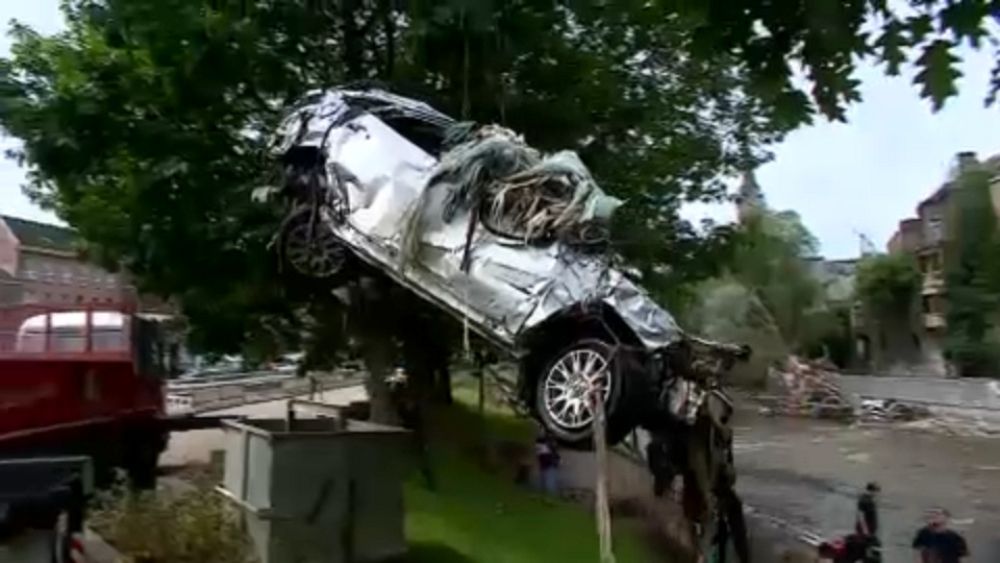
Mohammed is cleaning out the basement of his brother’s house.
Many underground floors were destroyed when they were completely submerged during the flooding in Belgium in mid July,
“Everything is cut. We have no gas, there’s nothing” Mohammed told Euronews.
Nearly two weeks after the floods in the town of Verviers, there are still hundreds of homes which remain uninhabitable.
Some have running water but most are without electricity and gas.
“Now we are waiting because we are not the first, not the last, there are a lots of people like this,” Mohammed said.
While 41 people lost their lives in the floods in Belgium, Verviers was one of the worst-hit towns — videos of cars flowing down the street were shared worldwide.
Those same cars are now being removed from the River Vesdre.
Euronews met a group of men who come from the German-speaking enclave who were donating their crane services for free.
“I can go home, lay in my bed, take a shower,” Johnny Havark, who controls the crane, said. “That’s what the people here don’t have anymore. They have nothing. Everything is gone.”
A car park in the centre of Verviers has become a makeshift landfill site for the enormous piles of possessions destroyed by the floodwater.
Here, charity support is filling in where the local government appears to be struggling.
Ramazan Celyan is a representative of the humanitarian charity HASENE.
“I’ve not seen the mayor, she’s not called me” he said. “We’ve already fed around 20,000 people by now.”
Small businesses are salvaging whatever they can — the owners of one affected corner shop say they don’t know what else to do.
Rashida El Bacoui sits cleaning cans and bottles which she hopes she can resell.
“We’ve thrown so much out,” she said. “The freezers, fridges, tills. Everything.”
202 of the 262 communes in the Wallonia region of Belgium have been told they’ll qualify for disaster relief funding from the government.
It will be welcome alongside insurance payouts — but that’s a long way off — and the clean-up will take months if not years.